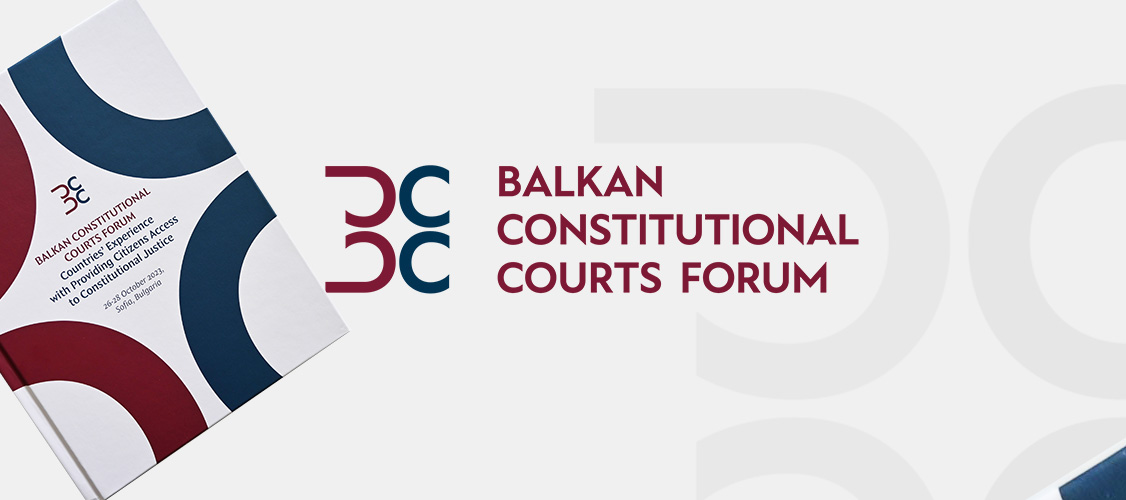
Forum information
Agenda
Opening
9:00 - 9:30 Registration of participants
9:30 - 9:45 Opening remarks – Pavlina Panova, President, Constitutional Court of the Republic of Bulgaria
9:45 - 10:00 Greetings address – Mariya Gabriel, Deputy Prime Minister and Minister of Foreign Affairs of the Republic of Bulgaria
10:00 - 10:15 Greetings address – Atanas Slavov, Minister of Justice of the Republic of Bulgaria
10:15 - 10:30 Greetings address – Věra Jourová, Vice-President, European Commission
10:30 - 10:50 Ceremony of signing of the Memorandum of the Balkan Constitutional Courts Forum
10:50 - 11:00 Official photo of the participants
11:00 - 11:30 Coffee break
11:30 - 12:00 Keynote speaker – Koen Lenaerts, President, Court of Justice of the European Union
12:00 - 12:30 Keynote speaker – Marko Bošnjak, Judge and Vice-President, European Court of Human Rights
12:30 - 14:00 Lunch
Panel 1 (14:00 - 15:30)
Presentations and discussions
Moderator: Prof. Ekaterina Mihaylova, New Bulgarian University
Presentations and discussions
Moderator: Prof. Ekaterina Mihaylova, New Bulgarian University
14:00 - 14:15 Presentation by Holta Zaçaj, President, Constitutional Court of the Republic of Albania
14:15 - 14:30 Presentation by Yanaki Stoilov, Judge, Constitutional Court of the Republic of Bulgaria
14:30 - 14:45 Presentation by Anna Kalogeropoulou, Councilor of State, Hellenic Council of State
14:45 - 15:00 Presentation by Gresa Caka- Nimani, President, Constitutional Court of the Republic of Kosovo
15:00 - 15:30 Discussion
15:30 - 16:00 Coffee break
Panel 2 (16:00-18:00)
Presentations and discussions
Moderator: Prof. Daniel Valchev, Sofia University “St. Kliment Ohridski”
Presentations and discussions
Moderator: Prof. Daniel Valchev, Sofia University “St. Kliment Ohridski”
16:00 - 16:15 Presentation by Budimir Sćepanović, President, Constitutional Court of Montenegro
16:15 - 16:30 Presentation by Dobrila Kacarska, President, Constitutional Court of the Republic of North Macedonia
16:30 - 16:45 Presentation by Marian Enache, President, Constitutional Court of Romania
16:45 - 17:00 Presentation by Hasan Tahsin Gökcan, Vice-President, Constitutional Court of the Republic of Türkiye
17:00 - 17:30 Discussion
17:30 - 17:40 Remarks by Valerija Galić, President, Constitutional Court of Bosnia and Herzegovina
17:40 - 17:50 Remarks by Snježana Bagić, Deputy President, Constitutional Court of the Republic of Croatia
17:50 - 18:00 Closing remarks – Pavlina Panova, President, Constitutional Court of the Republic of Bulgaria
SPEAKERS
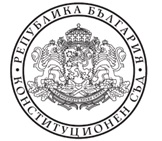
Конституционен съд на Република България
The Constitutional Court of the Republic of Bulgaria was established in 1991 and consists of 12 judges – each for a non-renewable 9-year term of mandate.
The powers of the Constitutional Court are stipulated in the Constitution. Most notably, the Court provides binding interpretations of the Constitution and rulings on the constitutionality of the laws and other parliamentary and presidential acts.
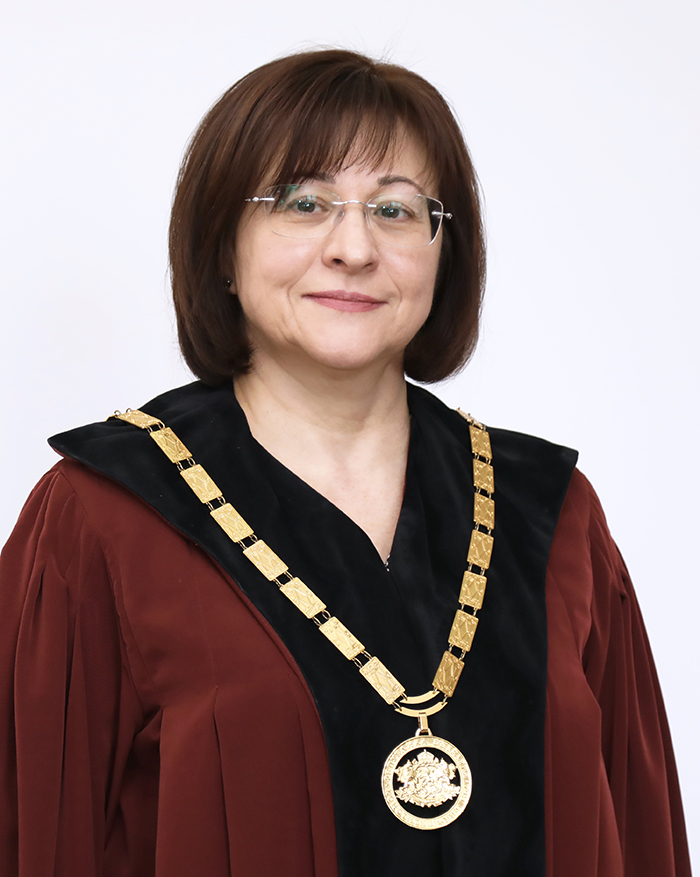
Pavlina Panova
Ph.D., President
President Panova obtained her Master’s and Doctorate's degree in Law, and a Master’s degree in European Union Lawat Sofia University “St. Kliment Ohridski” Between 1996 and2006 she was an assistant professor of Criminal Law at Sofia University.
She was a lecturer at the National Institute of Justice (2000), and at the Attorneys' Training Center “Krastyu Tsonchev “(2008).
Between 1992 and 2018 she was a magistrate, including Deputy Chair of the Supreme Court of Cassation.
In 2018 she was elected judge of the Constitutional Court by the General Assembly of Judges of the Supreme Court of Cassation and the Supreme Administrative Court.
In 2021 she was elected President of the Constitutional Court.
She was a lecturer at the National Institute of Justice (2000), and at the Attorneys' Training Center “Krastyu Tsonchev “(2008).
Between 1992 and 2018 she was a magistrate, including Deputy Chair of the Supreme Court of Cassation.
In 2018 she was elected judge of the Constitutional Court by the General Assembly of Judges of the Supreme Court of Cassation and the Supreme Administrative Court.
In 2021 she was elected President of the Constitutional Court.
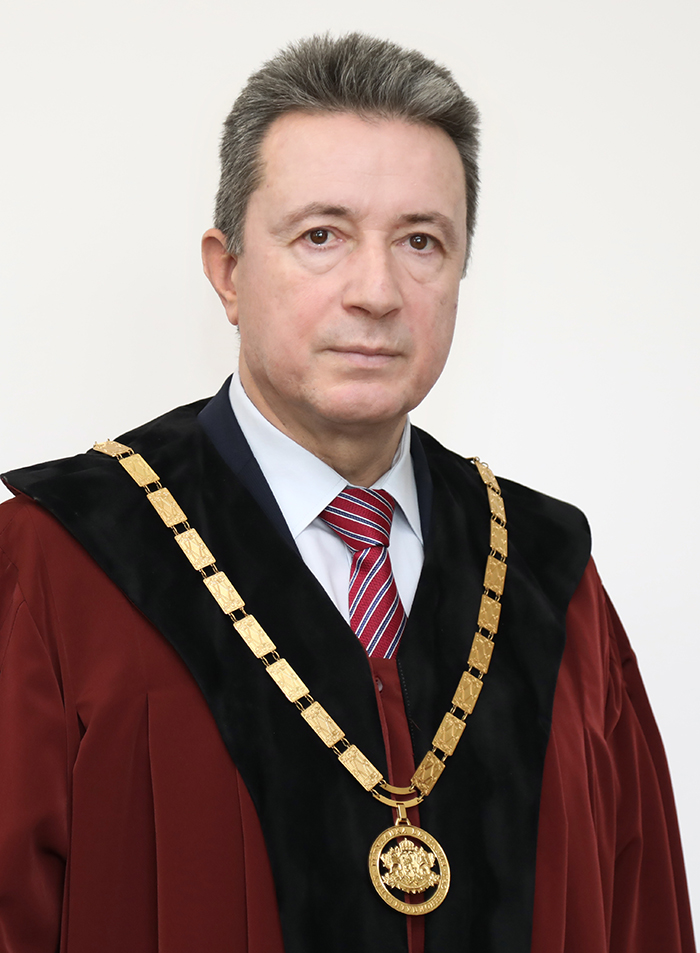
Prof. Yanaki Stoilov
Ph.D.,Judge
Yanaki Stoilov obtained his Master’s and Doctorate's degree in Law at Sofia University “St. Kliment Ohridski”. He was an assistant and subsequently associate professor at Sofia University. In 2018 he was an appointed professor of General Theory of Law at Sofia University and in 2019 - a professor of Theory of Law at Plovdiv University “Paisii Hilendarski”.
He served as a member of the 7th Grand National Assembly of the Republic of Bulgaria (1990 – 1991) and a member of the National Assembly for seven terms of mandate between 1991and 2017.
In May 2021 he was appointed Minister of Justice in the caretaker government.
In October 2021 he was appointed judge of the Constitutional Court.
He served as a member of the 7th Grand National Assembly of the Republic of Bulgaria (1990 – 1991) and a member of the National Assembly for seven terms of mandate between 1991and 2017.
In May 2021 he was appointed Minister of Justice in the caretaker government.
In October 2021 he was appointed judge of the Constitutional Court.
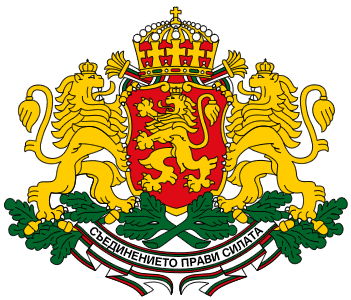
Council of Ministers of the Republic of Bulgaria
The Council of Ministers is the main authority of the executive power in the Republic of Bulgaria. It consists of the Prime Minister, Deputy Prime ministers, and ministers.
The Council of Ministers directs and conducts the State’s domestic and foreign policy.
The Prime Minister heads, coordinates and bears responsibility for the overall policy of the government.
The Council of Ministers directs and conducts the State’s domestic and foreign policy.
The Prime Minister heads, coordinates and bears responsibility for the overall policy of the government.

Mariya Gabriel
Deputy Prime Minister and Minister of Foreign Affairs
Mariya Gabriel has obtained a bachelor’s degree in ‘Bulgarian and French Philology’ at the PU “Paisii Hilendarski”. She graduated with a Master’s degree in Comparative Politics and International Relations at the Doctoral Academy of Political Science, Bordeaux.
Three times a Member of the European Parliament.
Between 2014 and 2017 she was Vice-Chair of the EPP Group. She is the first Vice-President of the EPP and Vice-President of EPP Women.
Mariya Gabriel was the European Commissioner for Digital Economy and Society (2017-2019). Before taking office as Minister in 2023, she was the European Commissioner for Innovation, Research, Culture, Education and Youth (2019-2023).
Three times a Member of the European Parliament.
Between 2014 and 2017 she was Vice-Chair of the EPP Group. She is the first Vice-President of the EPP and Vice-President of EPP Women.
Mariya Gabriel was the European Commissioner for Digital Economy and Society (2017-2019). Before taking office as Minister in 2023, she was the European Commissioner for Innovation, Research, Culture, Education and Youth (2019-2023).

Atanas Slavov
Minister of Justice
Atanas Slavov is a lawyer and a specialist in Constitutional Law.
He did postgraduate studies in constitutional law at the University of Sofia, holds a doctor’s degree from the University of Glasgow, and is an associate professor teaching public law.
Mr. Slavov contributed to drafting the amendments to the Constitution in 2015, to work out the Updated Judicial Reform Strategy, and to write dozens of bills. A member of the Anti-Corruption Fund team (2017-2021).
An MP in several National Assemblies. Chairman of the Parliamentary Committee on Constitutional Affairs.
He did postgraduate studies in constitutional law at the University of Sofia, holds a doctor’s degree from the University of Glasgow, and is an associate professor teaching public law.
Mr. Slavov contributed to drafting the amendments to the Constitution in 2015, to work out the Updated Judicial Reform Strategy, and to write dozens of bills. A member of the Anti-Corruption Fund team (2017-2021).
An MP in several National Assemblies. Chairman of the Parliamentary Committee on Constitutional Affairs.

The European Commission
The European Commission is the EU's politically independentexecutive arm. The Commission helps to shape the EU's overallstrategy, proposes new EU laws and policies, monitors theirimplementation, implements the decisions of the EuropeanParliament and the Council of the Europen Union and managesthe EU budget. It is made up of 27 commissioners (one fromeach member state) and is based in Brussels.
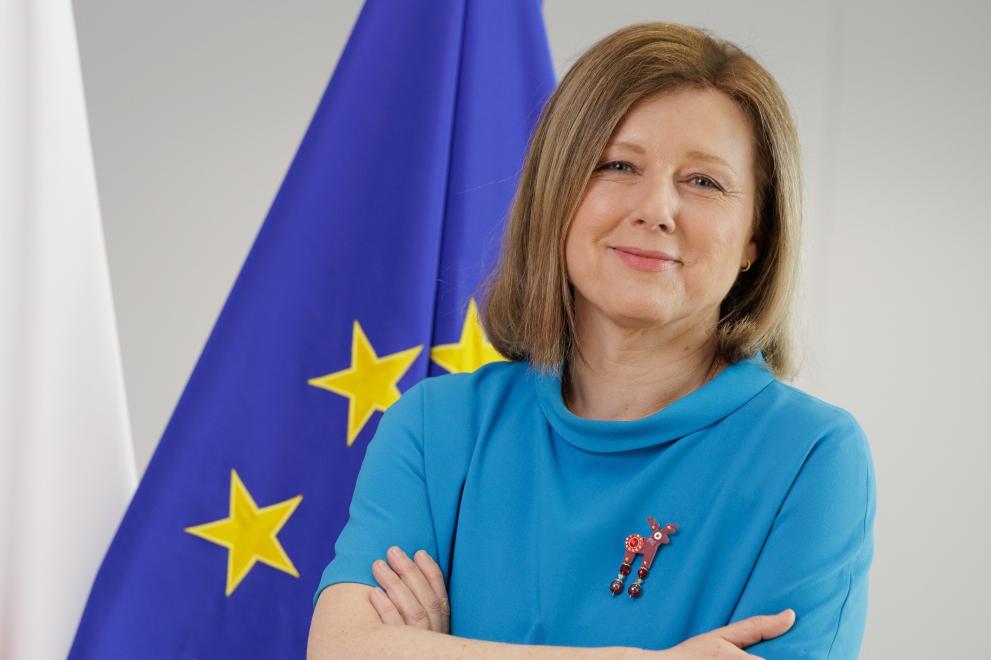
Věra Jourová
Vice-President
Věra Jourová has Master's degrees in Theory of culture and in Law obtained at the Charles University, Prague.
Deputy Minister for Regional Development, Czech Republic (2003-2006). Minister for Regional Development, Czech Republic in 2014.
Věra Jourová was the European Commissioner for Justice, Consumers and Gender Equality between 2014 and 2019.Since 2019 she has been European Commission Vice-President for Values and Transparency. Among her responsibilities are leading the Commission’s work on values and transparency, upholding the rule of law, as well as ensuring the democratic system is open, transparent, and protected from external interference.
Deputy Minister for Regional Development, Czech Republic (2003-2006). Minister for Regional Development, Czech Republic in 2014.
Věra Jourová was the European Commissioner for Justice, Consumers and Gender Equality between 2014 and 2019.Since 2019 she has been European Commission Vice-President for Values and Transparency. Among her responsibilities are leading the Commission’s work on values and transparency, upholding the rule of law, as well as ensuring the democratic system is open, transparent, and protected from external interference.

Court of Justiceof the European Union
The Court of Justice of the European Union, which has its seat in Luxembourg, is the common Court of the 27 EU Member States. Its mission is to ensure that EU law is interpreted and applied uniformly throughout the EU. It accomplishes that mission mainly in cooperation with the courts and tribunals of the Member States which can refer questions for a preliminary ruling on the interpretation or the validity of EU law to the Court of Justice. At the request of the European Commission or a Member State, the Court of Justice may also find that a Member State is in breach of EU law and even impose financial sanctions. The institution Court of justice of the European Union comprises not only the Court of justice but also the General Court. This first instance court can be seized by citizens and companies to review decisions of the EU institutions. Both the Court of Justice and the General Court may be seized in any of the 24 official languages of the EU.
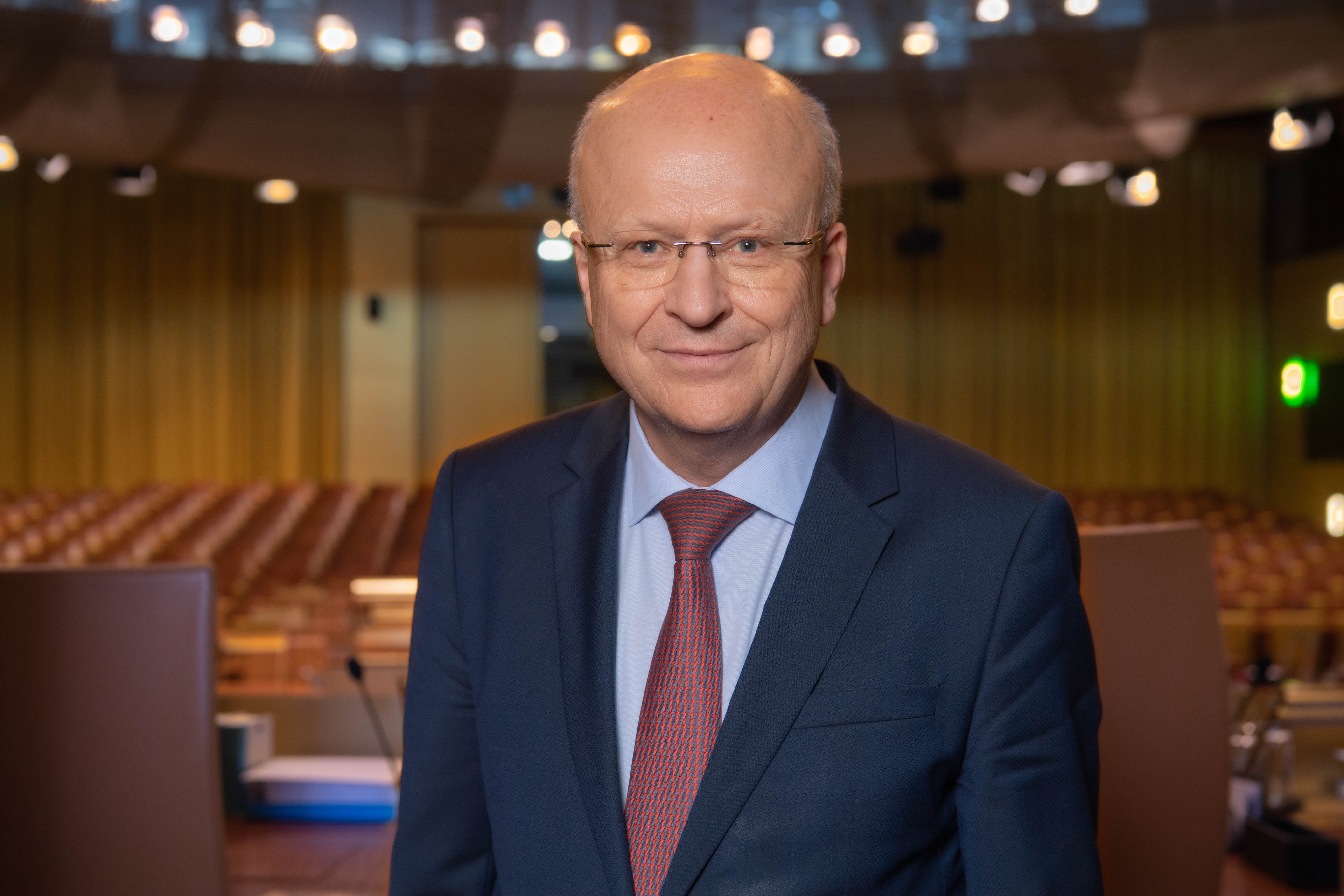
Koen Lenaerts
President
President Koen Lenaerts holds a Ph.D. in Law (University of Leuven), a Master’s in Law and a Master’s in Public Administration (Harvard University). He has been a Professor of European Law at the University of Leuven since 1983.Previously, he was a Professor at the College of Europe, Bruges (1984-89) and a lawyer in private practice at the Brussels Bar (1986-89), as well as a Visiting Professor at the Harvard Law School (1989). He was a Judge at the Court of First Instance of the European Communities (now the General Court), from 25September 1989 to 6 October 2003. He has been a Judge at the Court of Justice since 7 October 2003, serving as Vice-President from 9 October 2012 to 7 October 2015 and as President since 8 October 2015.
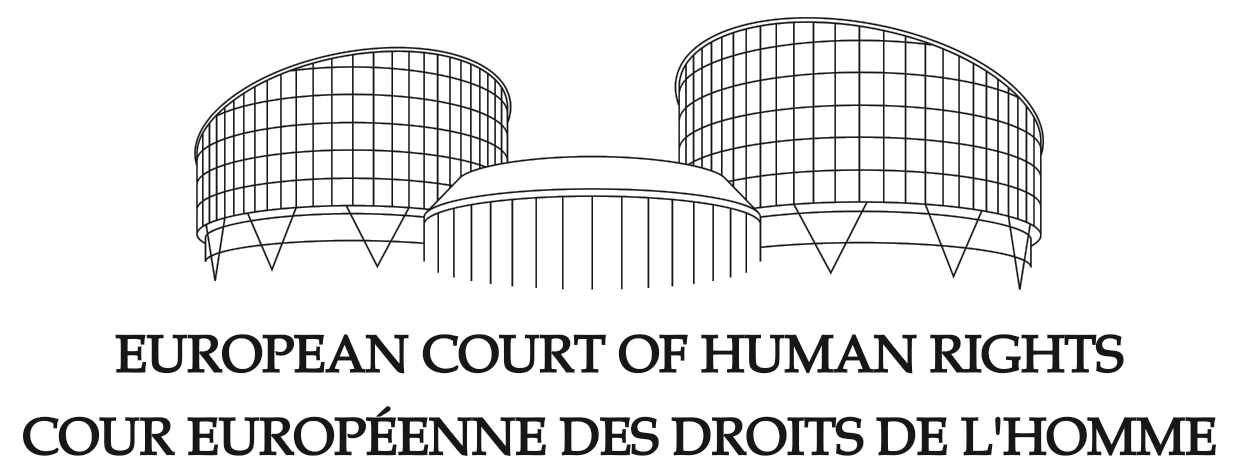
The European Court of Human Rights
The European Court of Human Rights is an international court set up in 1959. It rules on individual or State applications alleging violations of the civil and political rights set out in the European Convention on Human Rights. Since 1998 it has been a full-time court and individuals can apply to it directly. Its judgments are binding on the countries concerned and have led governments to alter their legislation and administrative practice in a wide range of areas.
The Court is based in Strasbourg. From here, the Court monitors respect for the human rights of 700 million Europeans in the 46Council of Europe member States that have ratified the Convention.
The Court is based in Strasbourg. From here, the Court monitors respect for the human rights of 700 million Europeans in the 46Council of Europe member States that have ratified the Convention.
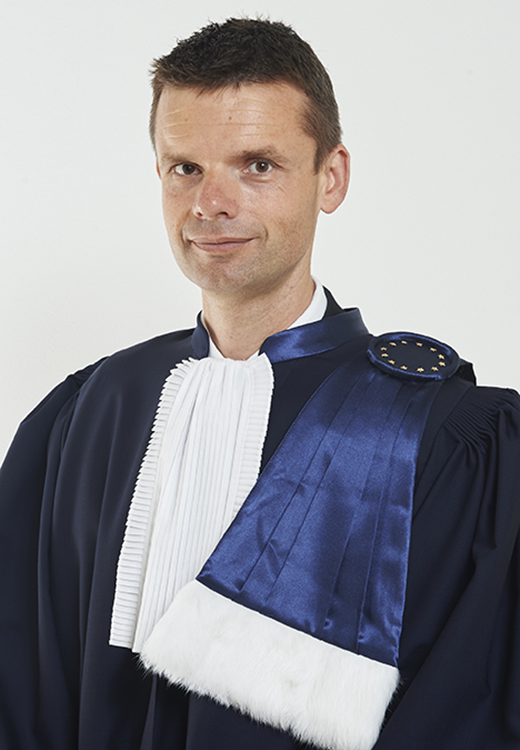
Marko Boššnjak
Vice-President
Mr. Boššnjak has a Ph.D. in Law from the University of Ljubljana (2002) where he was also an assistant professor of Criminal Law and Criminology between 2005-2015 and a lecturer at the Faculty of Social Sciences between 2006-2012.
Associate Professor of Criminal Law, Head of the Criminal Law Department at the European Law Faculty in Nova Gorica, Slovenia, since 2012.
Judge of the ECHR since 2016 and Vice-President of the Court since November 2022.
Associate Professor of Criminal Law, Head of the Criminal Law Department at the European Law Faculty in Nova Gorica, Slovenia, since 2012.
Judge of the ECHR since 2016 and Vice-President of the Court since November 2022.
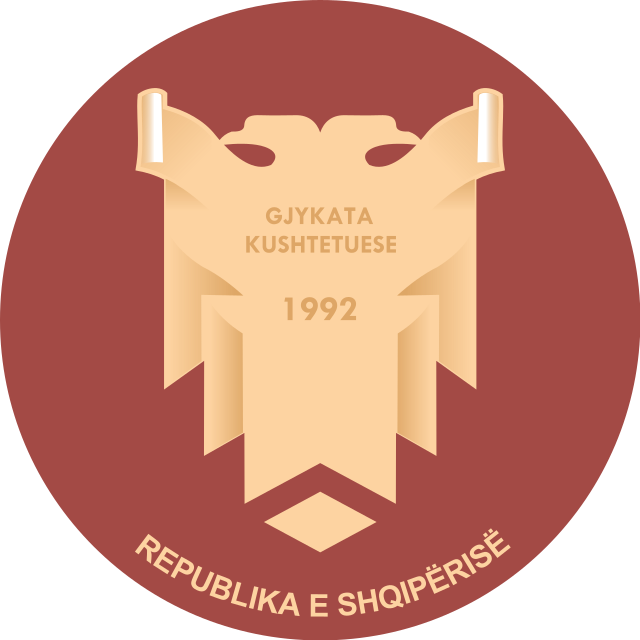
Constitutional Court Republic of Albania
For more than two decades since its foundation, the Constitutional Court has been shaped as a pure constitutional institution like its homologues in European countries.
The Constitutional Court guarantees respect for the Constitution and makes the final interpretation of the Constitution of the Republic of Albania. The Constitutional Court consists of 9 members who hold office for a 9-yearmandate without the right to re-appointment.
The Constitutional Court guarantees respect for the Constitution and makes the final interpretation of the Constitution of the Republic of Albania. The Constitutional Court consists of 9 members who hold office for a 9-yearmandate without the right to re-appointment.
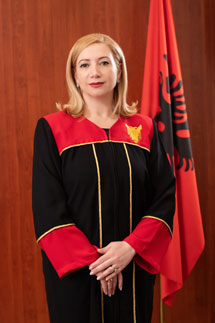
Holta Zaçaj
President
President Zaçaj is graduated from the University of Tirana, in1998. From 2007 until 2008 she completed her studies and obtained a scientific Master’s degree in “Securities and financial regulation“, at the Georgetown University in the USA, in the framework of the Fulbright Program. Visiting professor at the School of Magistrates, 2003-2013.
President Zaçaj
is the co-author of the Family Code, the Law on Children’s Rights and Protection in Albania, the package of law son the penitentiary treatment of minors in Kosovo.
In 2023 she becomes an appointed member of the Constitutional Court and is elected as the President of the Court.
President Zaçaj
is the co-author of the Family Code, the Law on Children’s Rights and Protection in Albania, the package of law son the penitentiary treatment of minors in Kosovo.
In 2023 she becomes an appointed member of the Constitutional Court and is elected as the President of the Court.

The Hellenic Council of State
The Hellenic Council of State (Symvoulio tis Epikrateias) is the Supreme Administrative Court of Greece. On 31.12.2022, the Court had 166 judges (1 President, 10 Vice-Presidents, 50Councilors, 61 Associate Councilors and 44 Assistant Judges),69% of whom are women (115 out of 166). The Council of State is one of the three supreme courts of Greece, the other two being the Supreme Civil and Criminal Court (Areios Pagos) and the Hellenic Supreme Financial Court (Elegktiko Synedrio),an audit institution auditing the use of public funds.
The judgments of the Council of State provide the highest authority on legal precedent for the lower administrative courts and set the standards for the interpretation of the Constitution and the laws and for the advancement of legal theory and practice. The judgments of the Council of State are final and directly enforceable on the parties.
The judgments of the Council of State provide the highest authority on legal precedent for the lower administrative courts and set the standards for the interpretation of the Constitution and the laws and for the advancement of legal theory and practice. The judgments of the Council of State are final and directly enforceable on the parties.
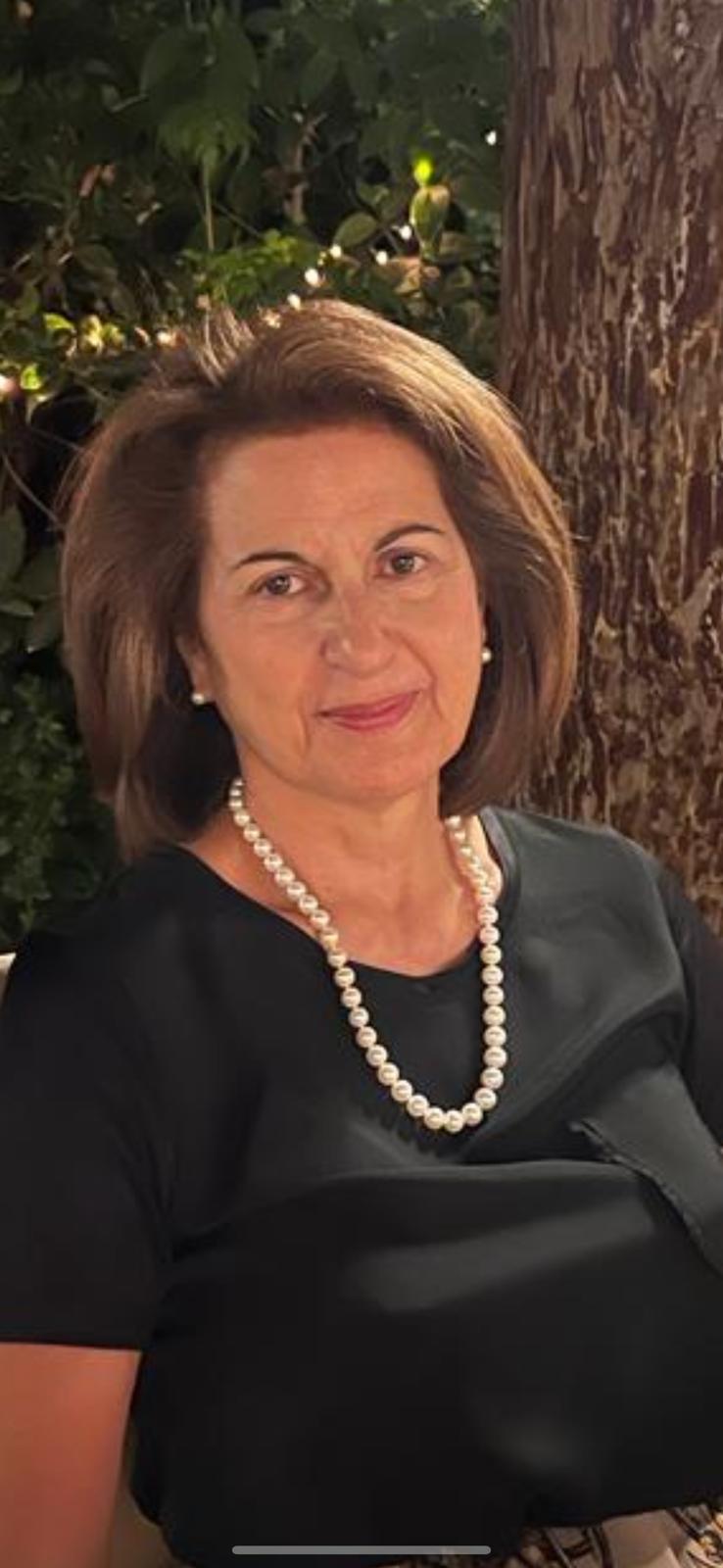
Anna Kalogeropoulou
Councilor of State
Councilor of State Ms. Anna Kalogeropoulou has obtained her Law degree from the Faculty of Law of the National University of Greece in 1983. Lawyer at the Athens Bar Association (January 1985).
She joined the Council of State of Greece as an Assistant Judge (Auditeur) in 1985 (September). She was appointed as Associate Councilor (Maîître des Requêêtes) in 1993 and as Councilor (Conseiller) in 2009.
As part of her study leave (1997-1998) as an academic visitor in Oxford University she took postgraduate courses in European Community Law and in Comparative Public Law(Constitutional and Administrative).
Since 2019 she presides over the Chamber of the Court which deals with compensation claims against the State and social security claims. She has handled some critical and of great importance legal cases dealing, among others, with the constitutional review of the national pensions and social security system which was enacted in 2016.
Spoken languages: Greek, English, and French.
She joined the Council of State of Greece as an Assistant Judge (Auditeur) in 1985 (September). She was appointed as Associate Councilor (Maîître des Requêêtes) in 1993 and as Councilor (Conseiller) in 2009.
As part of her study leave (1997-1998) as an academic visitor in Oxford University she took postgraduate courses in European Community Law and in Comparative Public Law(Constitutional and Administrative).
Since 2019 she presides over the Chamber of the Court which deals with compensation claims against the State and social security claims. She has handled some critical and of great importance legal cases dealing, among others, with the constitutional review of the national pensions and social security system which was enacted in 2016.
Spoken languages: Greek, English, and French.
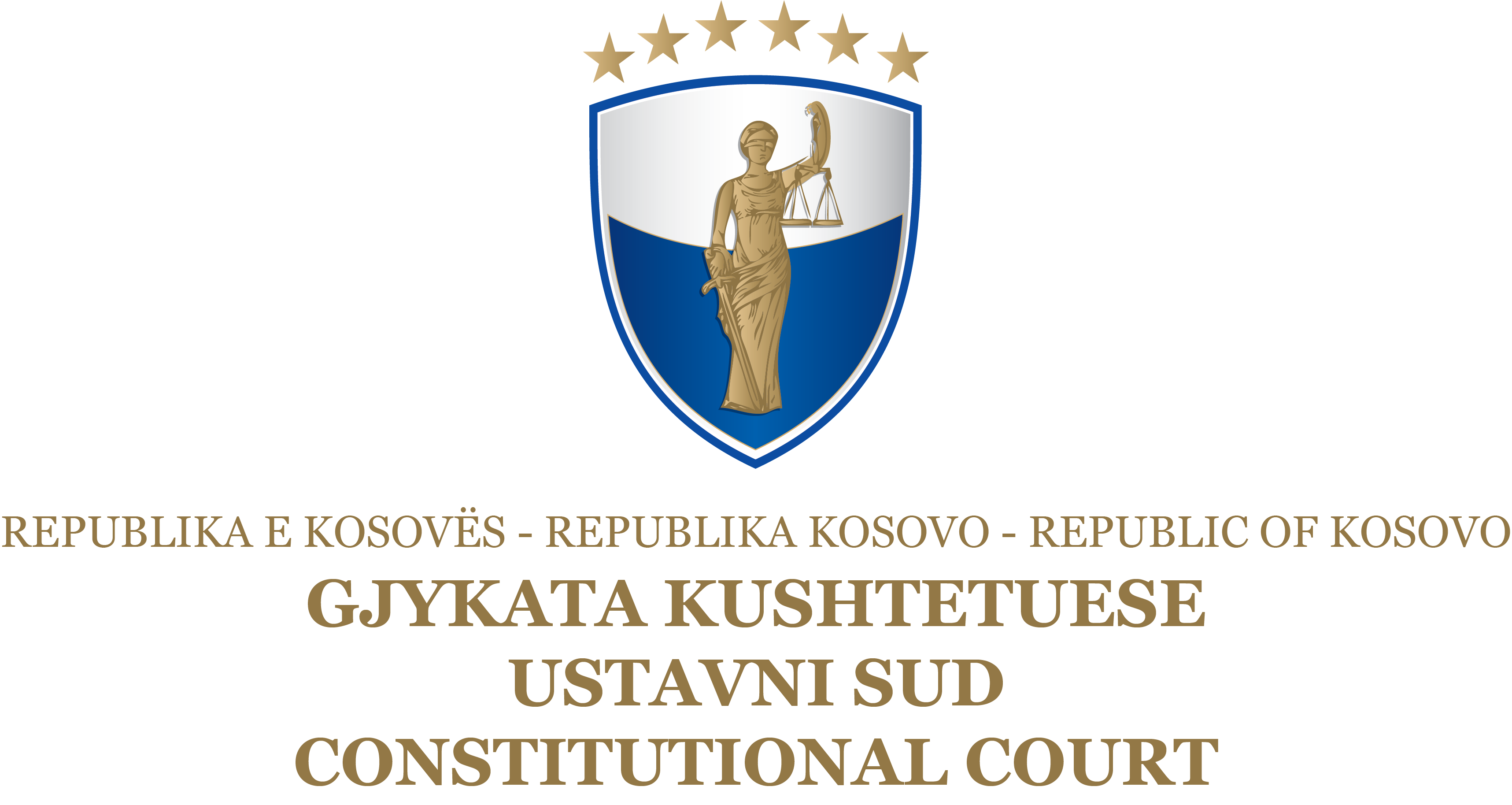
The Constitutional Court of Republic of Kosovo
The Constitutional Court is the final authority in the Republic of Kosovo for the interpretation of the Constitution, the compliance of laws with the Constitution, and for guaranteeing the protection of fundamental rights.
The Constitutional Court decides only on matters referred to the Court in a legal manner by authorized parties.
The Constitutional Court is composed of nine judges who serve for a non-renewable mandate of nine years.
The Constitutional Court decides only on matters referred to the Court in a legal manner by authorized parties.
The Constitutional Court is composed of nine judges who serve for a non-renewable mandate of nine years.
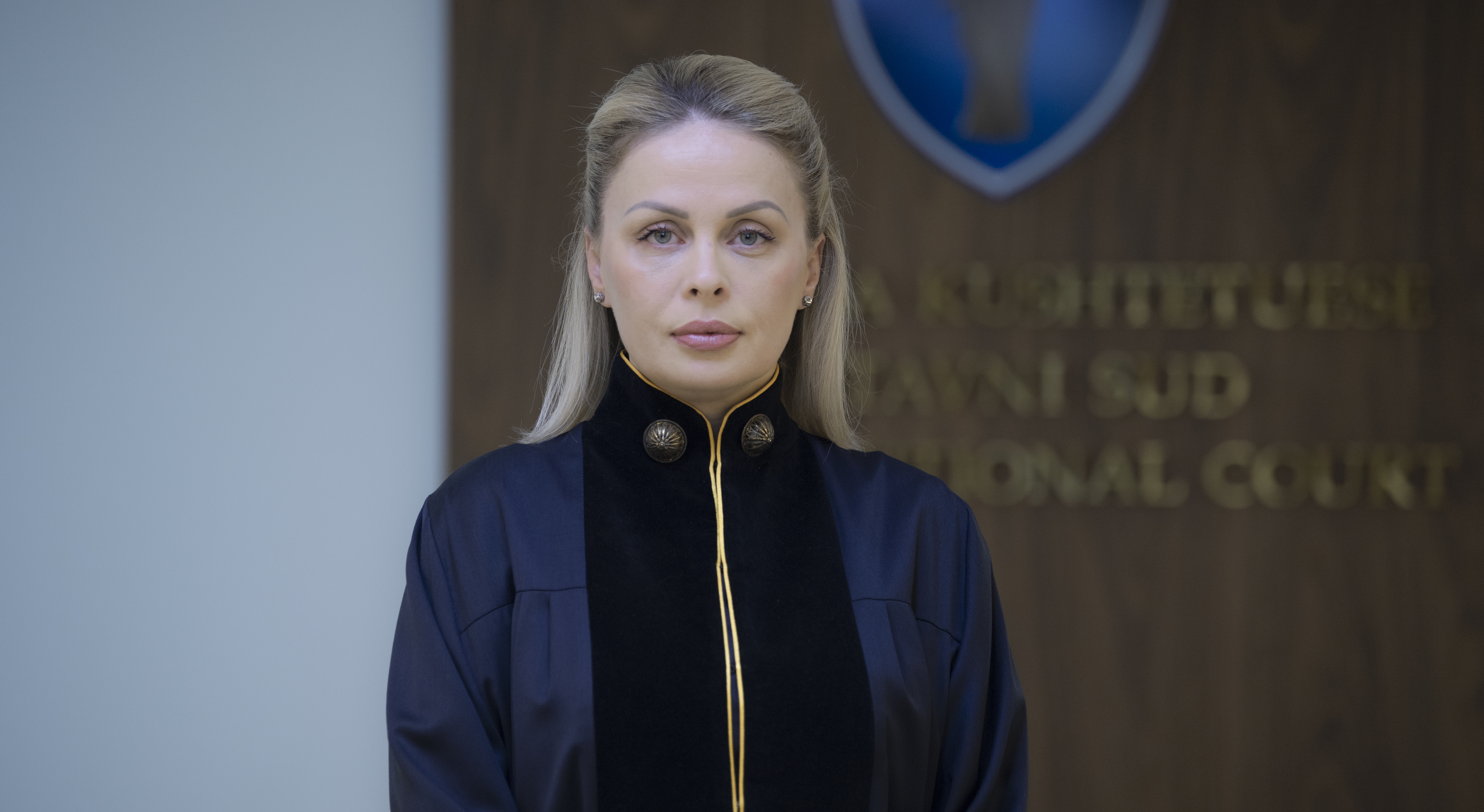
Gresa Caka-Nimani
President
President Caka-Nimani has completed legal studies at the University of Prishtina (2004), she has an LL.M. in European Integration and Regionalism from the University of Graz, Austria (2007), and is currently working on her doctorate degree.
Gresa Caka-Nimani has served as a Senior Legal Advisor and a Team Leader at the US Agency for International Development prior to her election as judge. She also supported the Constitutional Commission responsible for drafting the Constitution of the Republic of Kosovo.
Elected as a Judge of the Constitutional Court in 2015, and President of the Court since 2021.
Gresa Caka-Nimani has served as a Senior Legal Advisor and a Team Leader at the US Agency for International Development prior to her election as judge. She also supported the Constitutional Commission responsible for drafting the Constitution of the Republic of Kosovo.
Elected as a Judge of the Constitutional Court in 2015, and President of the Court since 2021.

Constitutional Court Montenegro
The Constitutional Court of Montenegro, as the guardian of constitutional democracy, is an exceptional, subsidiary power that makes decisions in situations when other authorities do not resolve disputes in accordance with the constitutional principles.
The Constitution adopted and promulgated on 22 October2007, in the autonomous and independent state of Montenegro, established the Constitutional Court as a special body separate from other authorities, which protects the constitutionality and legality, constitutional order and human rights and freedoms guaranteed by the Constitution.
The Judge of the Constitutional Court shall be elected for the period of 12 years.
The Constitution adopted and promulgated on 22 October2007, in the autonomous and independent state of Montenegro, established the Constitutional Court as a special body separate from other authorities, which protects the constitutionality and legality, constitutional order and human rights and freedoms guaranteed by the Constitution.
The Judge of the Constitutional Court shall be elected for the period of 12 years.
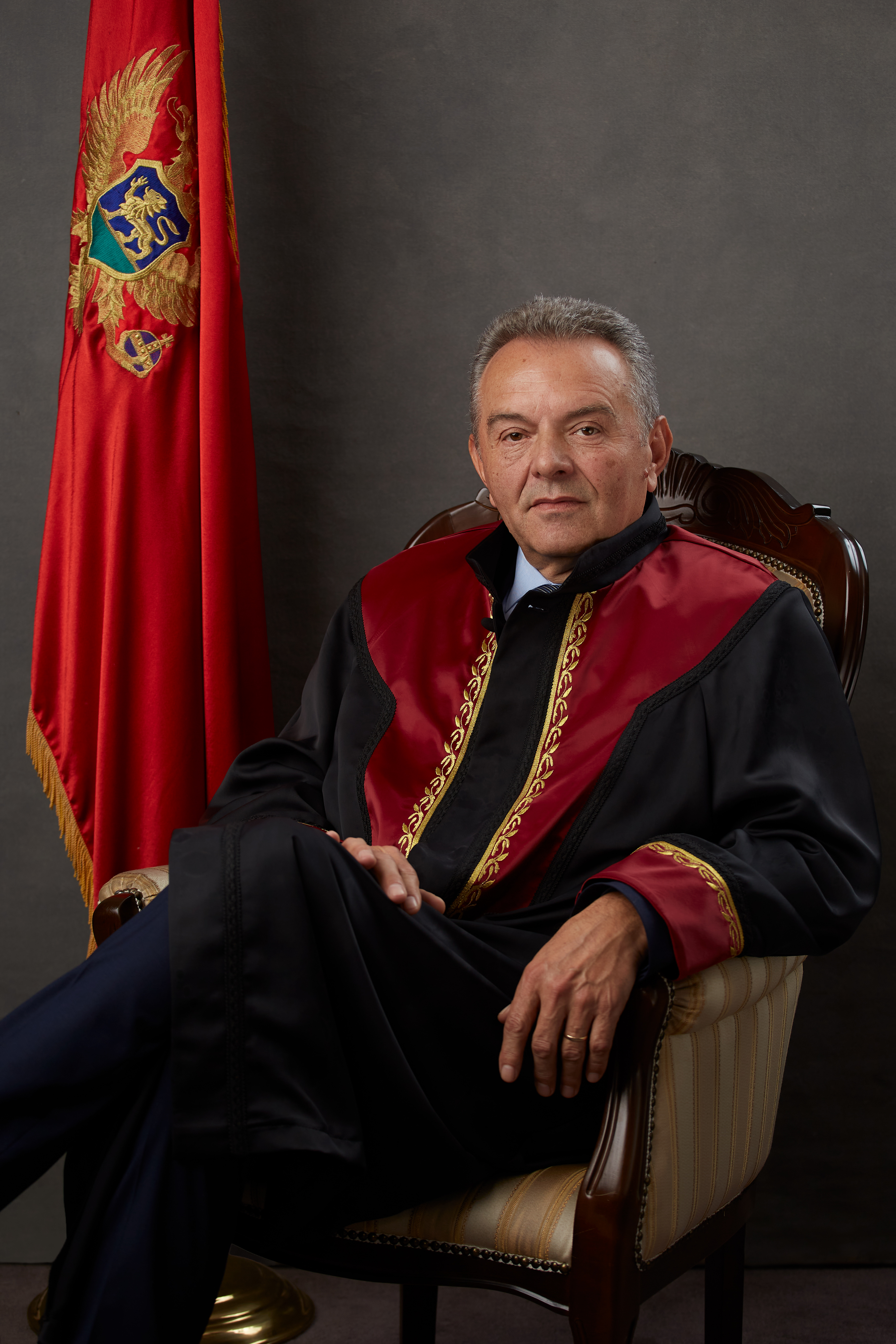
Budimir Šćepanović
President
President Šćepanović has graduated from the Law Faculty in Podgorica (1982). Worked in the Republic Secretariat for Legislation on normative-legal and analytical work from 1985 to1989.
From 1993 until 2004, President Šćepanović worked as an advisor at the Constitutional Court of Montenegro. He was first elected Deputy Protector of Human Rights and Freedoms in 2004, and for the second time in 2011.
He was elected a judge of the Constitutional Court of Montenegro in December 2013.
From 1993 until 2004, President Šćepanović worked as an advisor at the Constitutional Court of Montenegro. He was first elected Deputy Protector of Human Rights and Freedoms in 2004, and for the second time in 2011.
He was elected a judge of the Constitutional Court of Montenegro in December 2013.
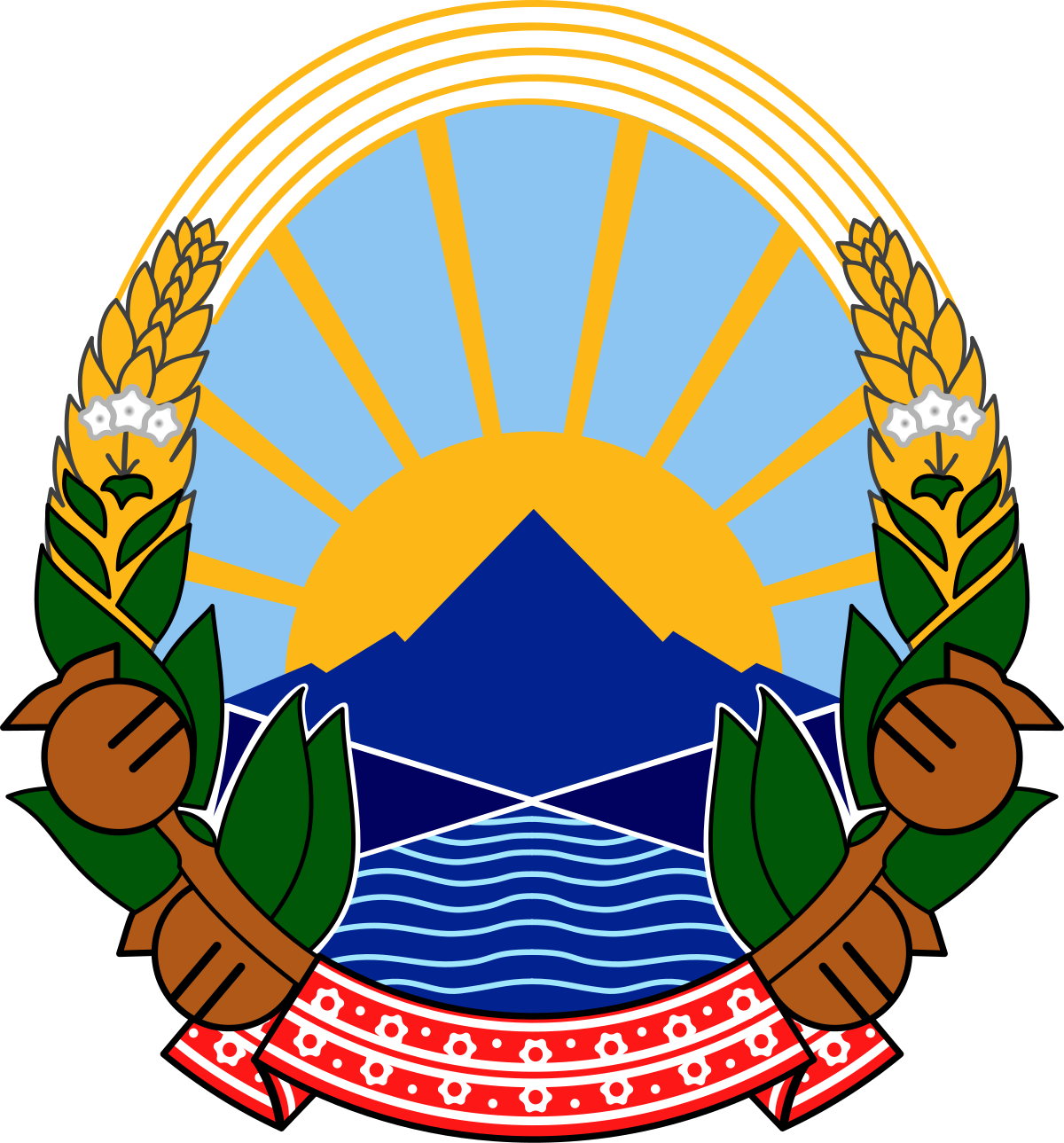
Constitutional Court Republic of North Macedonia
The Constitutional Court of North Macedonia consists of nine judges elected for a term of nine years without the right to reelection. The Court settles matters within its competence on the full bench.
The competences of the Constitutional Court of the Republic of North Macedonia are defined by the Constitution.
The Court organizes public hearings when it recognizes the need, except in cases when it decides on a request for the protection of individual rights when the decision is, by rule, made on the basis of a public hearing.
The competences of the Constitutional Court of the Republic of North Macedonia are defined by the Constitution.
The Court organizes public hearings when it recognizes the need, except in cases when it decides on a request for the protection of individual rights when the decision is, by rule, made on the basis of a public hearing.
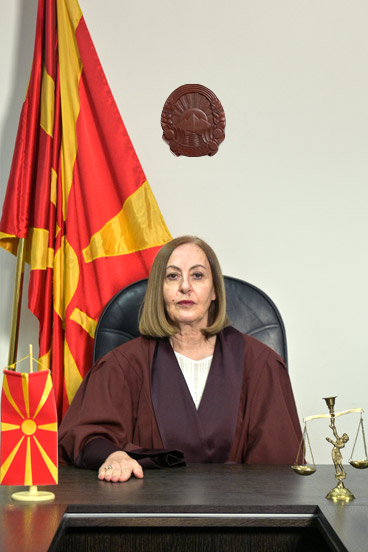
Dobrila Kacarska
President
Dobrila Kacarska graduated from the Faculty of Law at the University “St. Cyril and Methodius” in Skopje.
She was a judge from 1986 to 2005 in the Basic Court Skopje 1Skopje in the Department for civil disputes.
She was a President of the Basic Court Skopje 1 Skopje from 2005 to 2009.
In 2009 President Kacarska was assigned to the Criminal Department for adults of the same court until 2018 when she was assigned to the Department for Organised Crime and Corruption.
She was a member of the working groups for drafting several laws. Elected as a Judge of the Constitutional Court in 2020, and President of the Court since 2021.
She was a judge from 1986 to 2005 in the Basic Court Skopje 1Skopje in the Department for civil disputes.
She was a President of the Basic Court Skopje 1 Skopje from 2005 to 2009.
In 2009 President Kacarska was assigned to the Criminal Department for adults of the same court until 2018 when she was assigned to the Department for Organised Crime and Corruption.
She was a member of the working groups for drafting several laws. Elected as a Judge of the Constitutional Court in 2020, and President of the Court since 2021.

Constitutional Court Romania
The Constitutional Court is the sole authority of constitutional jurisdiction in Romania, and it shall be independent of any other public authority. To fulfil its functions as the “guarantor for the supremacy of the Constitution”, the Court discharges the powers prescribed by Article 146 of the Basic Law.
The Constitutional Court of Romania is composed of nine judges, appointed for a 9-year term of office, which cannot be extended or renewed. Three judges are appointed by the Chamber of Deputies, three by the Senate and three by the President of Romania.
The Constitutional Court of Romania is composed of nine judges, appointed for a 9-year term of office, which cannot be extended or renewed. Three judges are appointed by the Chamber of Deputies, three by the Senate and three by the President of Romania.
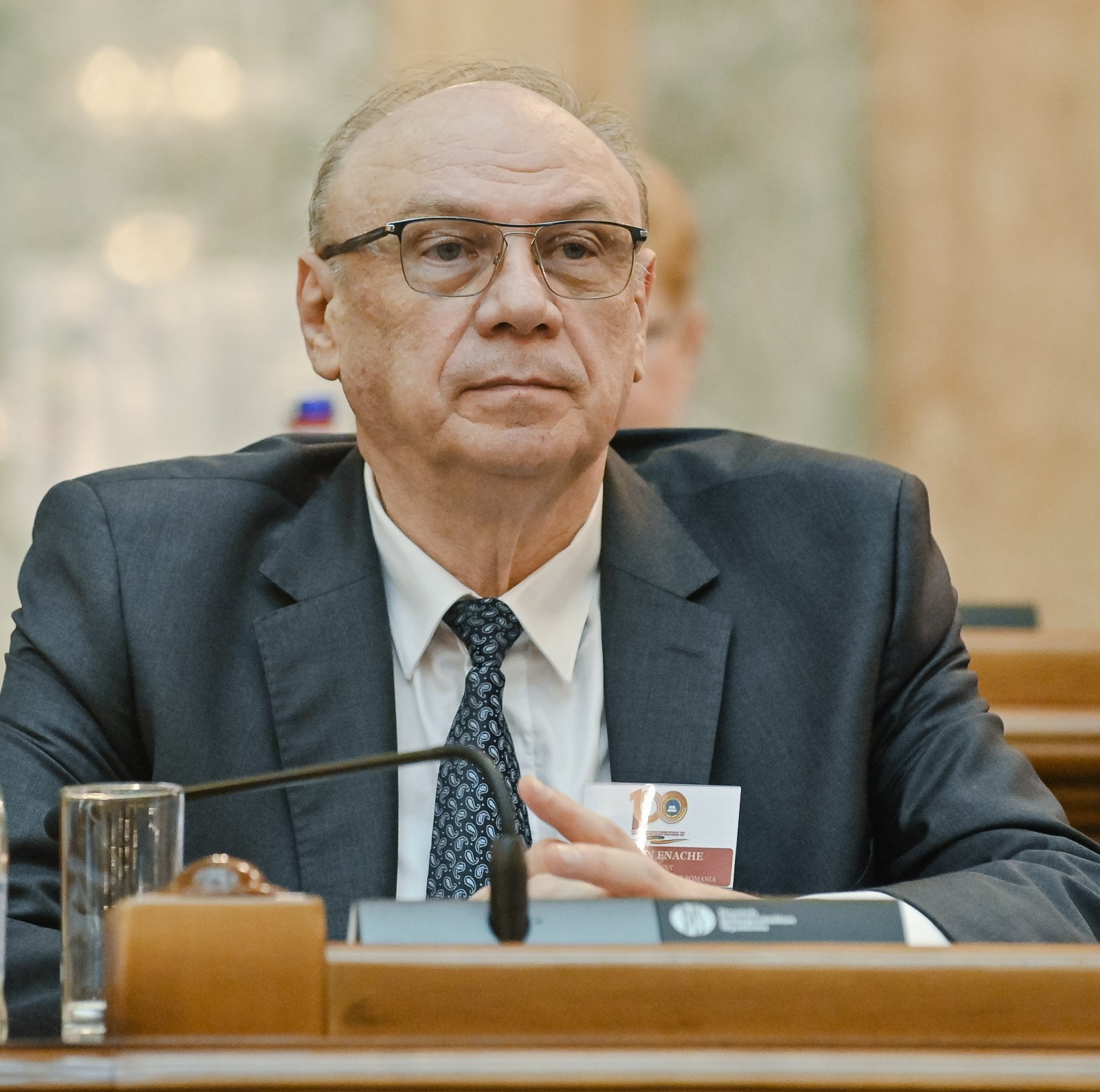
Marian Enache
President
President Enache has completed his legal studies at the “Al. I. Cuza” University of Iași (1977) and has a PhD in Constitutional Law from the University of Bucharest (1997).
Prior to his appointment as a judge by the Senate (2016), he was Vice-President of the Constituent Assembly Committee in 1990and was member of the Drafting Committee of Romania’s 1991Constitution. Presidential counsellor on legal issues in Romania’s Presidential Administration. He had several parliamentary mandates and practiced as a lawyer.
President of the Court since 2022.
Prior to his appointment as a judge by the Senate (2016), he was Vice-President of the Constituent Assembly Committee in 1990and was member of the Drafting Committee of Romania’s 1991Constitution. Presidential counsellor on legal issues in Romania’s Presidential Administration. He had several parliamentary mandates and practiced as a lawyer.
President of the Court since 2022.

Constitutional Court Republic of Türkiye
The Turkish Constitutional Court consists of 15 Justices. The term of office is twelve years and non-renewable. But in any case, the mandate of a Member expires at the age of 65.
There are two Sections of the Court in order to examine individual applications and such Sections shall be composed of the members except for the President of the Court.
As a rule, the Plenary shall take decisions by absolute majority. However, annulment of constitutional amendments, dissolution of political parties, or their deprivation from state aid, shall be decided with a two-thirds majority of Justices attending the meeting.
There are two Sections of the Court in order to examine individual applications and such Sections shall be composed of the members except for the President of the Court.
As a rule, the Plenary shall take decisions by absolute majority. However, annulment of constitutional amendments, dissolution of political parties, or their deprivation from state aid, shall be decided with a two-thirds majority of Justices attending the meeting.
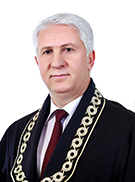
Hasan Tahsin Gökcan
Vice-President
Mr. Gökcan graduated in Law from the Faculty of Law, Ankara University, in 1987. He has a Master’s Degree in Public Law from the Gazi University.
Reporting Judge at the Court of Cassation, 1998.
In 2011 he became Judge at the Court of Cassation.
Three years later, Mr. Gökcan became a Justice at the Constitutional Court. Since 2019 he has been Vice-President of the Constitutional Court (elected twice by the Plenary of the Court) and Head of its First Section.
Reporting Judge at the Court of Cassation, 1998.
In 2011 he became Judge at the Court of Cassation.
Three years later, Mr. Gökcan became a Justice at the Constitutional Court. Since 2019 he has been Vice-President of the Constitutional Court (elected twice by the Plenary of the Court) and Head of its First Section.

Constitutional Court Bosnia and Herzegovina
The Constitutional Court is composed of nine members. Four members are selected by the House of Representatives of the Federation of Bosnia and Herzegovina, two members are selected by the National Assembly of the Republika Srpska. The remaining three judges are appointed by the President of the ECHR after consultation with the Presidency of Bosnia and Herzegovina.
The jurisdiction of the Constitutional Court is defined under Article IV (3), Article VI (3) and Article VI (4) of the Constitution. Within its overriding duty to 'uphold' the Constitution of Bosnia and Herzegovina, there are seven types of jurisdiction, which ultimately implies distinct proceedings and distinct decisions depending on the type of jurisdiction and the nature of the dispute.
The jurisdiction of the Constitutional Court is defined under Article IV (3), Article VI (3) and Article VI (4) of the Constitution. Within its overriding duty to 'uphold' the Constitution of Bosnia and Herzegovina, there are seven types of jurisdiction, which ultimately implies distinct proceedings and distinct decisions depending on the type of jurisdiction and the nature of the dispute.
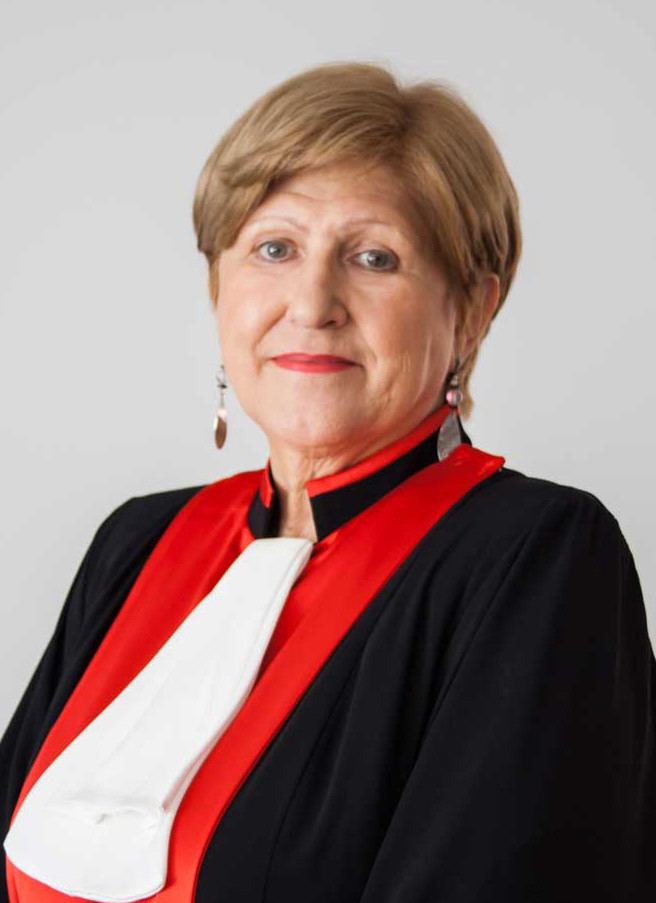
Valerija Galić
President
President Galić has graduated from the Faculty of Law at the University of Sarajevo. Having passed the bar exam, she worked as a law clerk, then advisor and assistant secretary for legislation within the Executive Council of the R/FBiH Government until 1996. In 1996, she was appointed the Secretary to the Office for Legislation of the FBiH Government. She was a member of several working commissions tasked with drafting systemic laws in various fields and participated in several international programs held in the USA and France (Strasbourg).
Valerija Galić is a member of the committees of Bar Examiners at the level of BiH and is an examiner in Administrative and Labour Law. She took the office of the President of the Constitutional Court for the second term in August 2022.
Valerija Galić is a member of the committees of Bar Examiners at the level of BiH and is an examiner in Administrative and Labour Law. She took the office of the President of the Constitutional Court for the second term in August 2022.

Constitutional Court Republic of Croatia
The Constitutional Court of the Republic of Croatia consists of thirteen justices elected by a two-thirds majority of the Members of the Croatian Parliament from among notable jurists, especially judges, state attorneys, attorneys and university law professors pursuant to the procedure and method set forth by a constitutional act.
The term of office of a Constitutional Court justice is eight years and shall be extended by up to six months in exceptional cases, where, upon the expiry of an incumbent’s term of office, a new justice has not been elected or has not assumed office.
The term of office of a Constitutional Court justice is eight years and shall be extended by up to six months in exceptional cases, where, upon the expiry of an incumbent’s term of office, a new justice has not been elected or has not assumed office.
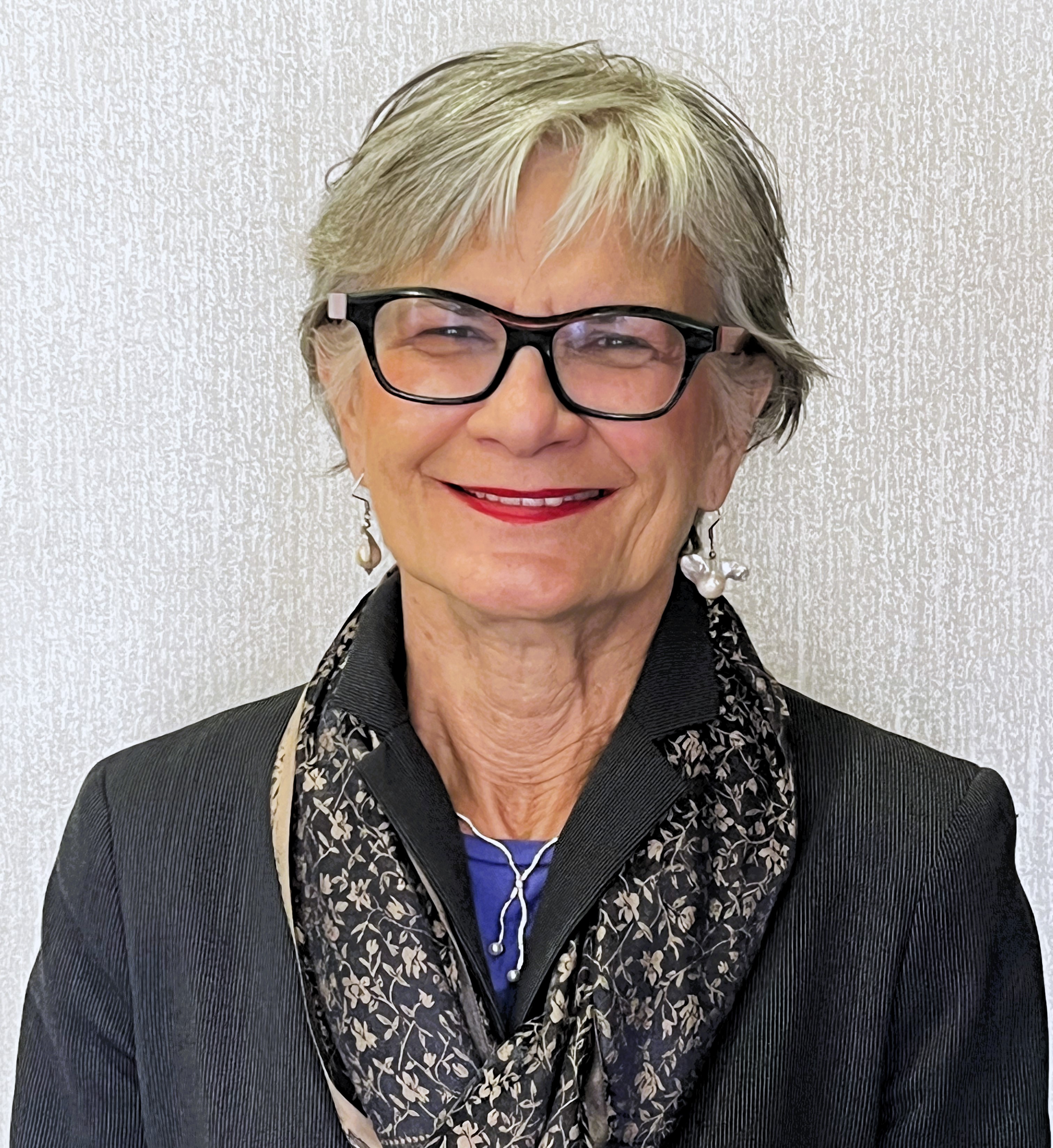
Dr. Snježana Bagić
Deputy President
Snježana Bagić has graduated from the Faculty of Law of the University of Zagreb, where she also gained her LL.D. in European Law.
In 1997 she became Deputy Minister of Justice and Head of the Office for Cooperation with the International Criminal Tribunal for the former Yugoslavia and the International Court of Justice.
From 2000 to 2003 she was head of the Office for Legislation of the Croatian Government. She was elected judge of the Zagreb County Court in 2003, and in 2004 she became State Secretary of the Ministry of Justice, which she remained until her election as a judge of the Constitutional Court of the Republic of Croatia in2007, to which she was re-elected in 2016.
In 1997 she became Deputy Minister of Justice and Head of the Office for Cooperation with the International Criminal Tribunal for the former Yugoslavia and the International Court of Justice.
From 2000 to 2003 she was head of the Office for Legislation of the Croatian Government. She was elected judge of the Zagreb County Court in 2003, and in 2004 she became State Secretary of the Ministry of Justice, which she remained until her election as a judge of the Constitutional Court of the Republic of Croatia in2007, to which she was re-elected in 2016.
MODERATORS
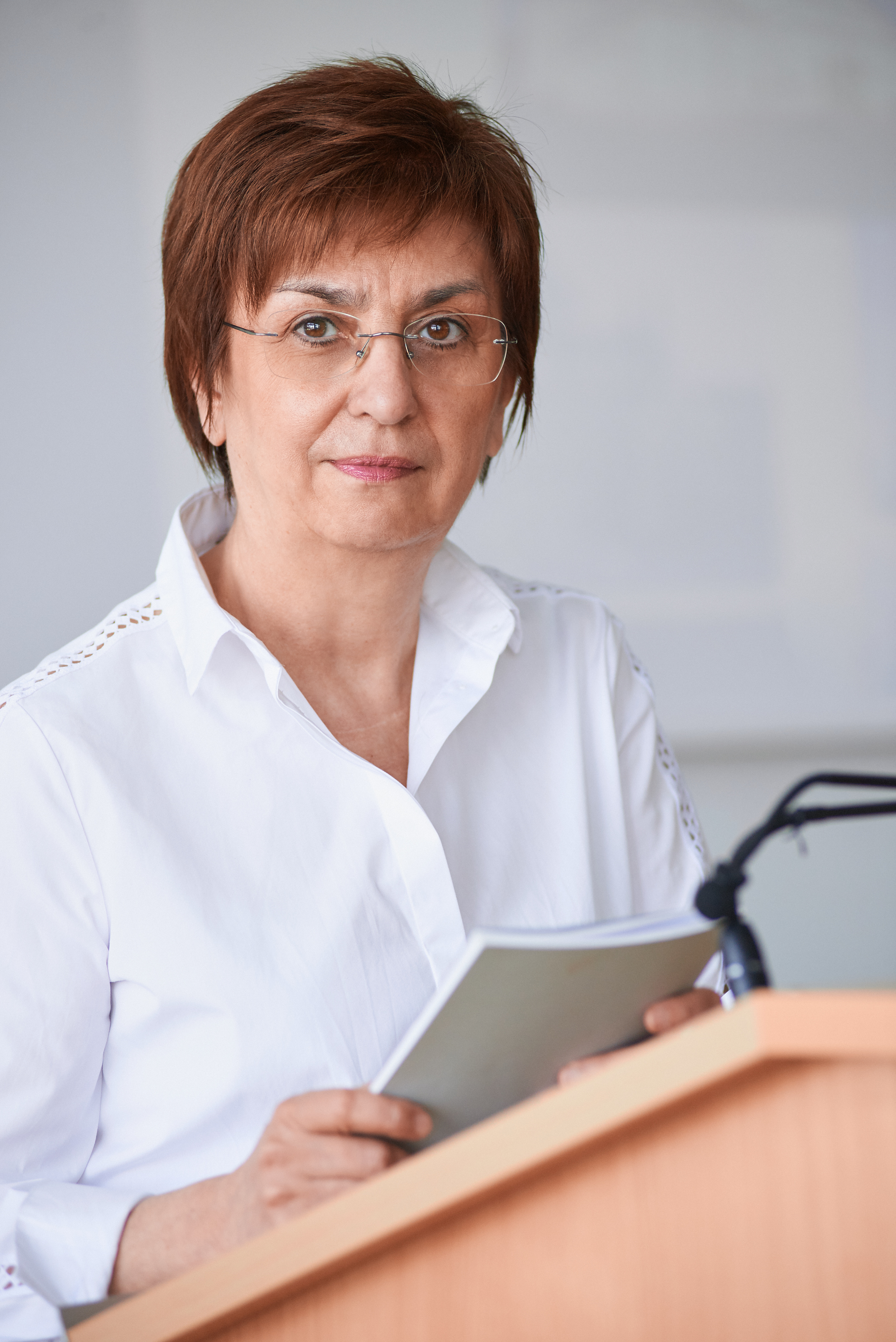
Prof. Ekaterina Mihaylova
Ph.D., New Bulgarian University
Professor Mihaylova obtained her Master’s Degree in Law at Sofia University ”St. Kliment Ohridski” and her Doctorate’s degree in political sciences at New Bulgarian University (NBU).
In 2007 she was awarded the title Honorary Professor of NBU for her contribution to the development of the theory and practice of the parliamentary state.
In 2016 she was appointed Professor of History of Law and the State.
Between 1991 and 2009 she served as a member of the National Assembly of the Republic of Bulgaria.
In 2015 she was appointed to the Consultative Constitutional Council under the Ombudsman of the Republic of Bulgaria.
In 2007 she was awarded the title Honorary Professor of NBU for her contribution to the development of the theory and practice of the parliamentary state.
In 2016 she was appointed Professor of History of Law and the State.
Between 1991 and 2009 she served as a member of the National Assembly of the Republic of Bulgaria.
In 2015 she was appointed to the Consultative Constitutional Council under the Ombudsman of the Republic of Bulgaria.

Prof. Daniel Valchev
Ph.D., Dean of the Faculty of Law, Sofia University “St. Kliment Ohridski”
Professor Valchev obtained his Master’s and Doctorate's degree in Law at Sofia University ”St. Kliment Ohridski”. Between 1992and 2013 he was an assistant and subsequently associate professor at Sofia University.
In 2013 he was appointed professor of General Theory of Law at Sofia University.
In 2019 he was elected Dean of the Faculty of Law at Sofia University.
He is an honorary doctor at Soka University in Tokyo, Japan and an honorary professor at Shanghai University, China.
Between 2001 and 2005 he served as a member of the National Assembly of the Republic of Bulgaria and was appointed representative of the National Assembly of the Republic of Bulgaria in the Convention on the Future of Europe.
Between 2005 and 2009 he was appointed Deputy Prime Minister and Minister of Education and Science.
In 2013 he was appointed professor of General Theory of Law at Sofia University.
In 2019 he was elected Dean of the Faculty of Law at Sofia University.
He is an honorary doctor at Soka University in Tokyo, Japan and an honorary professor at Shanghai University, China.
Between 2001 and 2005 he served as a member of the National Assembly of the Republic of Bulgaria and was appointed representative of the National Assembly of the Republic of Bulgaria in the Convention on the Future of Europe.
Between 2005 and 2009 he was appointed Deputy Prime Minister and Minister of Education and Science.
News
2023-11-07
Official Establishment of the Balkan Constitutional Courts Forum and First Annual Meeting in Sofia
learn more2023-10-27
Official Establishment of the Balkan Constitutional Courts Forum and First Annual Meeting in Sofia
learn more2023-10-17
